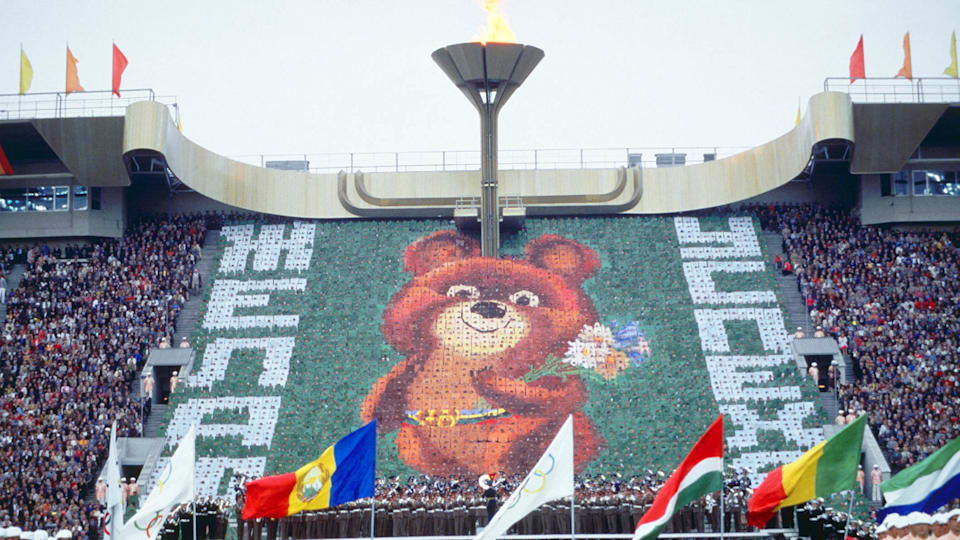Moscow 1980: Forty years on
Today marks the 40th anniversary of the Opening Ceremony of the Games of the XXII Olympiad, in Moscow in 1980.

The first Games to be held behind the Iron Curtain in a socialist country, they were attended by 5,179 athletes (1,115 women and 4,064 men), from 80 National Olympic Committees (NOCs). Among the participating nations, seven NOCs – Angola, Botswana, Cyprus, Jordan, Laos, Mozambique and the Seychelles – made their first-ever appearance at the Olympic Games.
There were some truly stunning performances in the-then Soviet capital, where athletes competed in 203 different events. Home athlete gymnast Aleksandr Dityatin won medals in every men’s gymnastics event – three gold, four silver and one bronze – becoming the first athlete to win eight medals at the same Olympic Games. At the same time, super-heavyweight Teófilo Stevenson of Cuba became the first boxer to win the same division three times, and Gerd Wessig of East Germany became the first male high jumper to break the world record at the Olympic Games.
Meanwhile on the track, Great Britain’s middle-distance runners Steve Ovett and Sebastian Coe went head-to-head in what proved a memorable race. Ovett took the gold medal in the 800m ahead of his compatriot. Six days later, the tables were turned when Coe took gold in the 1500m, while Ovett had to settle for bronze. In total, 36 world records, 39 European records and 74 Olympic records were set at the Games.
The Olympic Games Moscow 1980 are also remembered for a boycott as part of a protest against the Soviet invasion of Afghanistan in December 1979. As a result, some 67 eligible nations refrained from participating in the Games. Some explicitly cited the boycott as the reason, with others giving alternative explanations. Other nations left the decision about participation to the athletes themselves, with several participating under the Olympic flag or the flags of their NOCs rather than their national flags.
As a result, Moscow 1980 was a bitter-sweet experience for many athletes under strong pressure to desist – or even banned – from participating. Although some who forewent the Games managed to maintain their training and participate in the Olympic Games four years later in 1984, others who had trained since Montreal 1976 saw their hopes and dreams of repeating the experience dashed. Still others missed out on what was their only opportunity to go to an edition of the Olympic Games.
One athlete who was unable to participate was the current International Olympic Committee President, Thomas Bach, from West Germany, a Montreal 1976 champion in fencing. Reflecting on the boycott 40 years later, he commented: “This should never happen again to future generations of athletes. And this is what still drives me today, to give all the clean athletes of the world the chance to participate in the Olympic Games.”
In the event, despite many athletes making the ultimate career sacrifice, the boycott failed to achieve its aims as the Soviet presence in Afghanistan lasted until 1989.
President Bach added: “Anybody who is thinking about a boycott should learn this lesson from history; a sports boycott serves nothing. It's only hurting the athletes and it's hurting the population of the country because they are losing the joy to share, the pride, the success with their Olympic team. So, what is a boycott for? It's against all the Olympic spirit. It's against all the values we have in sport and what we stand for in sport.
The text of the full interview with Thomas Bach can be read here.
